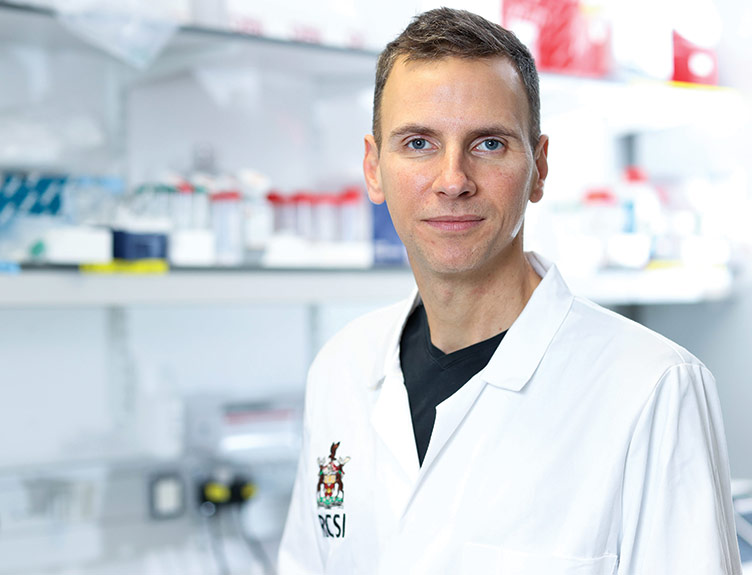Minister Bruton launches new €58 million SFI research centre

The Minister for Jobs, Enterprise and Innovation, Richard Bruton TD, together with the Minister for Research & Innovation, Sean Sherlock TD, today launched the Advanced Materials and Bio-Engineering Research Centre (AMBER).
The Centre is funded by the Department of Jobs, Enterprise and Innovation through Science Foundation Ireland (SFI) in the amount of €35million. This funding is leveraged with an additional €23 million from 18 industry partners. AMBER will directly support 99 jobs and there is potential for further job creation.
The AMBER Research Centre is led by Trinity College Dublin in collaboration with University College Cork and the Royal College of Surgeons of Ireland.
Speaking at the launch, Minister Bruton said: "Almost 50% of IDA jobs wins are connected to SFI research projects - that's almost 6000 jobs per year over recent years. Therefore, if we are to achieve the level of job-creation we need, we must ensure that our science and research spending is properly targeted at employment opportunities. As part of the Action Plan for Jobs we are making a series of changes to achieve this, including the new SFI centres programme which will focus our spending in this area on 7 large-scale research centres which can attract industry funding and compete with the best in the world.
"The establishment of AMBER is a key part of this plan. Nanoscience and materials science are areas where we rank well inside the top ten internationally for research. The scale and ambition of this centre means that we can attract 18 industry partners and leading international researchers who can turn these good ideas into good jobs. I commend all involved and wish them every success with this crucial project."
Minister Sherlock stated that, "With nanoscience linked to €15 billion or 10% of Irish exports and 250,000 jobs in sectors like technology, biomedicine, pharmaceuticals, energy and more, the importance of AMBER as a driver of future materials science research is clear. As a national centre, AMBER will play a key role in growing and retaining existing companies, providing world-leading research, increasing the level of foreign direct investment and enabling job creation in Ireland."
AMBER will work to translate science into new discoveries and devices for a range of sectors, particularly ICT, medical devices and industrial technologies. It is an academia-industry research consortium dedicated to developing new materials and medical devices which includes the development of novel silicon and magnetic memory devices which will impact communication devices like mobile phones; medical implant coatings which will improve patient care, for example hip implants and other products such as thermoelectric devices.
Professor Fergal O'Brien, Professor of Bioengineering & Regenerative Medicine in RCSI and Deputy Director of AMBER, said: "AMBER presents a unique opportunity to develop advanced next generation materials and medical devices. It brings together world class scientists in bioengineering and nanotechnology in addition to the Tissue Engineering Research Group and clinicians based at RCSI thus ensuring that the biomaterials and medical devices developed are informed by clinical need. The level of investment is at a scale comparable to leading research centres worldwide and will ensure Ireland is a global leader in materials science and medical device technologies"
Professor Mark Ferguson, Director General of SFI, said, "The SFI Research Centres Programme represents the largest ever state industry co-funded research investment of its kind in Ireland. The programme will see €200 million of Irish exchequer funding matched by €100 million in support from industry invested in seven world class research centres of scale, one of which is AMBER. AMBER has the potential to impact positively on Ireland's future, not only in terms of the research outputs and resulting economic gain, but also in terms of creating and maintaining a strong pool of excellent talent within our shores. The foundation of AMBER has already delivered tangible economic benefits that include productive engagement with industry collaborators and the creation of new jobs."
Welcoming the announcement, Prof Ray Stallings, Director of Research at RCSI, said: "We are delighted with the launch of AMBER, which will help accelerate the development of new materials for the benefit of patients, in keeping with our strategy of bench to bedside translational research."



